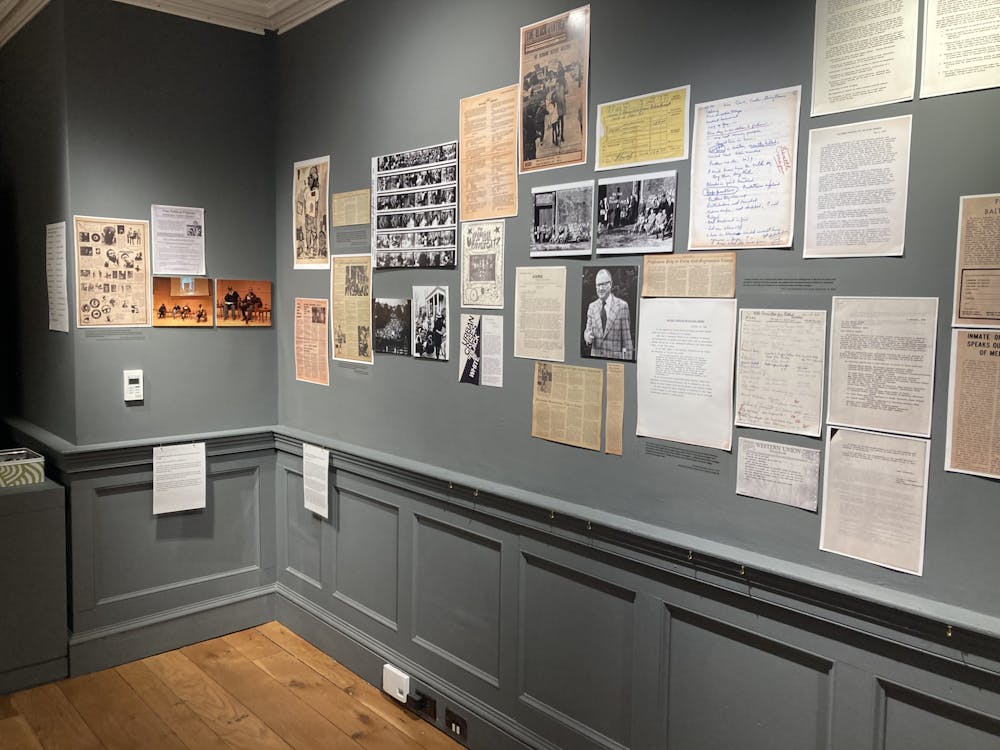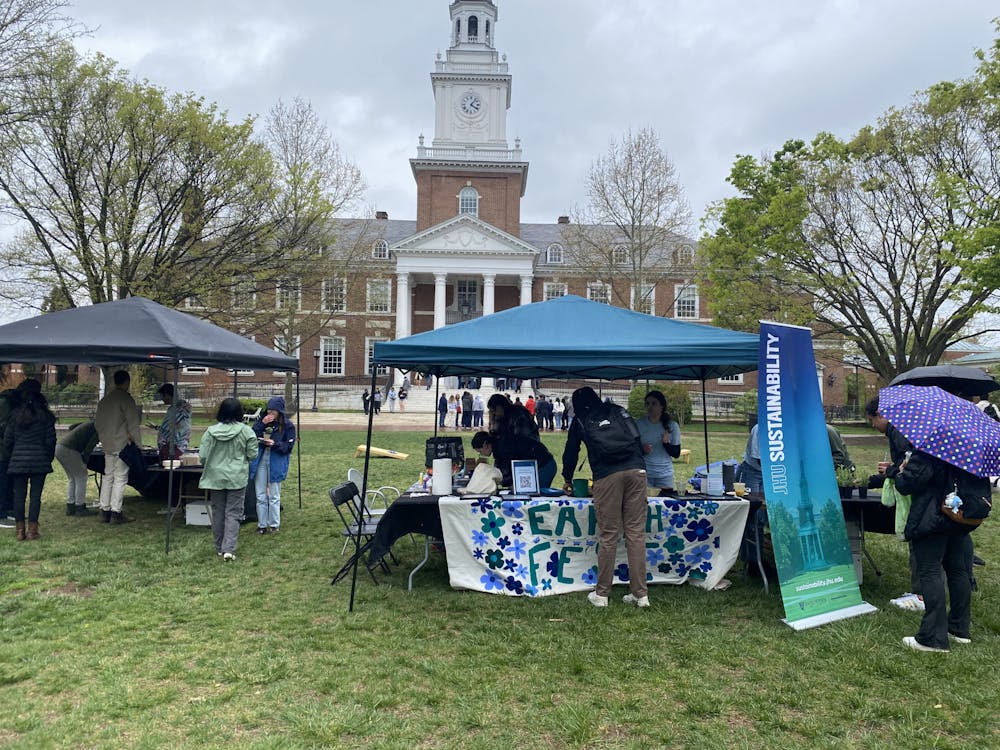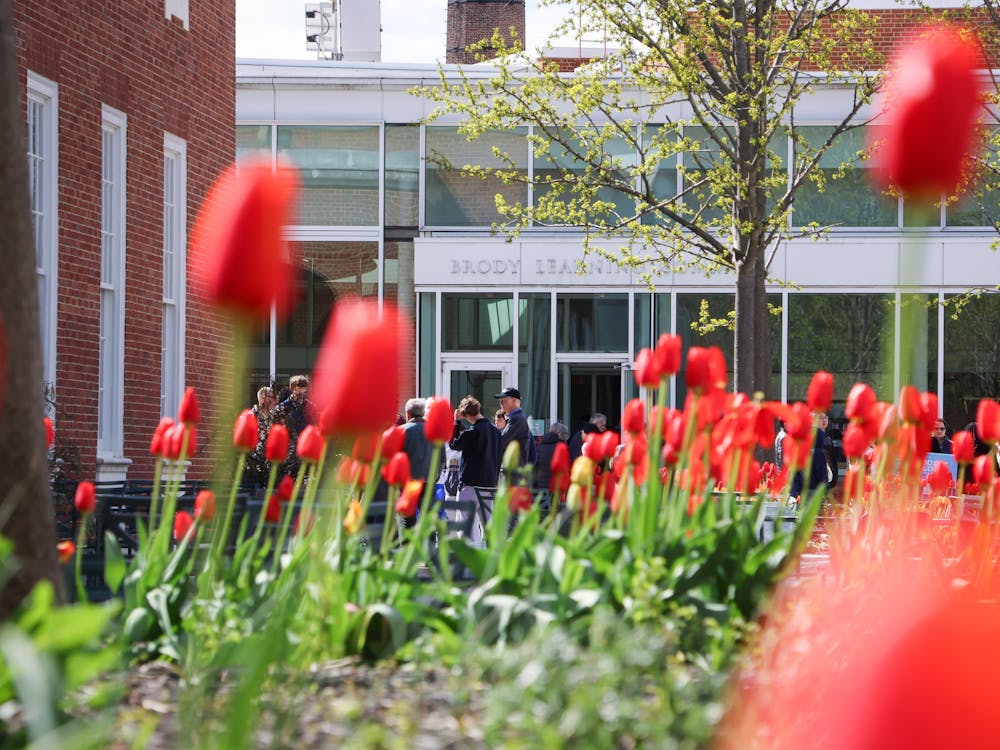Activists Abigail Boyer and Bridgette Stumpf gave the keynote address at the second Approaching Gender Violence on Campus Networking Conference on Friday.
Boyer manages services and programs for the Clery Center, which educates colleges and universities about the Clery Act, a statute that requires campuses to maintain and disclose crime and safety information.
Stumpf is the co-executive director of Network for Victim Recovery of DC (NVRDC) which provides legal advocacy services.
The conference was sponsored by the Center for Health Education & Wellness, Women and Gender Resources, the Interfaith Center, and LGBTQ Life.
In their keynote, Boyer and Stumpf discussed reporting sexual assaults on campus. Boyer said there has been a recent increase in public conversations about campus assaults.
According to Boyer, regulatory acts, like the Clery Act and Title IX, as well as social movements, such as #MeToo and Time’s Up, have encouraged greater dialogue around sexual assault.
“Individuals are coming forward in all spheres, not just on campus and saying, ‘These are my experiences — this is how sexual assault and sexual violence has impacted me in particular,’” Boyer said.
She explained that the rise in individuals reporting sexual assaults have prompted campus communities to reevaluate the implications of these reports.
She added that some universities state that sexual assault is nonexistent on their campus.
“But in order for the prevention to occur, we need to have a good understanding of how the violence is impacting our community,” Boyer said.
The Clery Act was discussed in the context of understanding sexual violence through statistical analysis of the rate of these crimes. Additionally, the Clery Act mandates that institutions set policies to guide prevention and response to crimes on campus, including sexual assault.
Boyer and Stumpf discussed the media’s negative perception about of college campuses with high numbers of annual sexual assault reports. An increase in annual report rates is often interpreted as a school becoming dangerous, which was a misconception, according to Boyer.
She stated that an increase in the rate of sexual assault reports could mean that students are becoming more comfortable reporting what happened to the authorities or colleges doing a better job of encouraging investigations into sexual assault reports.
“When you look at national prevalence rate of how many sexual assaults are happening on campus, even the ‘high’ numbers are not consistent with what’s happening at the institution,” Boyer said.
She explained that the number of reported sexual assaults does not reflect the actual number of sexual assaults that occur. According to Boyer, rates of sexual assault are more accurate because students often do not report sexual assaults.
Stumpf emphasized the repetitive nature of sexual assault to underline the importance of reporting campus sexual violence.
“We know that only 25 percent of individuals that are raped report,” Stumpf said. “How does that underreporting impact the rates of sexual violence?”
Stumpf added that another barrier between the effectiveness of reporting is that some students feel uncomfortable with trusting a system.
“We face this in the hospital all the time; transgender individuals who have had really terrible experiences with the health system,” Stumpf said. “Even in marginalized populations who don’t trust formal structures because of the criminal justice system and its history of racism.”
Director of LGBTQ Life Demere Woolway hosted a discussion after the keynote which focused on the impact of sexual assault on LGBTQ students.
“LGBTQA individuals are impacted by things like sexual assault and partner violence, and then marginalized by the services that are supposed to support survivors of gendered violence,” Woolway wrote in an email to The News-Letter.
She believes that the Bystander Intervention Training (BIT) raises awareness and encourages students to recognize their role in shaping the campus culture surrounding sexual violence.
She added that she would like to see more conversations about supportive and equal relationships around campus and for students to have more opportunities to recognize a healthy relationship.
Alyse Campbell, a behavioral health specialist at the Student Health and Wellness Center, also facilitated a discussion at the conference. As the Sexual Assault Prevention, Education and Response Coordinator, Campbell explained that she wanted to have an active role in communicating with attendees.
She added some ways in which the University can improve the way they approach gender violence on campus.
“[We will be] continuing to listen to student voices, to survivor’s voices, and continuing to make sure there is a seat at the table for students and survivors,” Campbell wrote in an email to The News-Letter.






















Please note All comments are eligible for publication in The News-Letter.